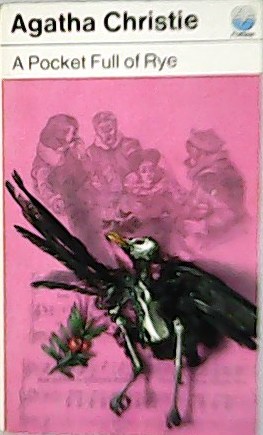
“Rye” makes me reflect on the craftsmanship that goes into Christie’s best works. In my mind’s eye, I pictured Stephen Rea from “V for Vendetta” – thorough and professional, but lacking that ability to sift through complexities possessed by the Poirots and Marples. He’s another of the thoroughly competent governmental detectives that reveals Christie’s trust in the profession. Then, of course, she solves the mystery despite her worry that she’s not articulating her views well to Inspector Neele. But Marple enters “Rye’s” events out of concern for Gladys, who once worked for her.Īll 6 ‘Mission: Impossible’ films, ranked

Meanwhile, parlormaid Gladys Martin is not good at her job, but she keeps it because there’s no one better out there.Īlthough it has become less common by 1953, household help is so normal in the first half of the century that even Miss Marple has it. Those who do choose the profession can do quite well for themselves savvy housekeeper Mary Dove picks this line of work for the pay. These old, large households are becoming less common, and it’s hard to find and afford good help to keep the place running. Good help is hard to findĬhristie taps into a trend similar to 2021’s Great Resignation. He’s often drunk and unreliable, and only keeps his job because Mrs. Granted, they didn’t get along with Rex, but murder? And so forth …)Īnd she names the butler “Crump,” to top it off. (Because, after all, certainly no one in the household would’ve done it. She portrays the butler like one of those off-page “tramps” that everyone (except the professional sleuths) initially assumes is the killer. Christie satirizes the “butler did it” cliché. “Rye” is a rare book where many of the household staff get full characterizations. Son Percival Fortescue (whose characterization is easy to remember because he’s like Percy Weasley from “Harry Potter”) and his wife have a wing with their own entrance.

Miss Ramsbottom, the sister-in-law of murder victim Rex Fortescue, is a recluse in an isolated room who unfurls religious judgments.

or Miss Fortescue in dialog, thus causing me to page back to the dramatis personae – occupy a house so large that people don’t cross each other’s paths all that much. The seven Fortescues – whom Christie often calls Mr.

As with other novels from around this time, the cultural transition is noticeable.


 0 kommentar(er)
0 kommentar(er)
